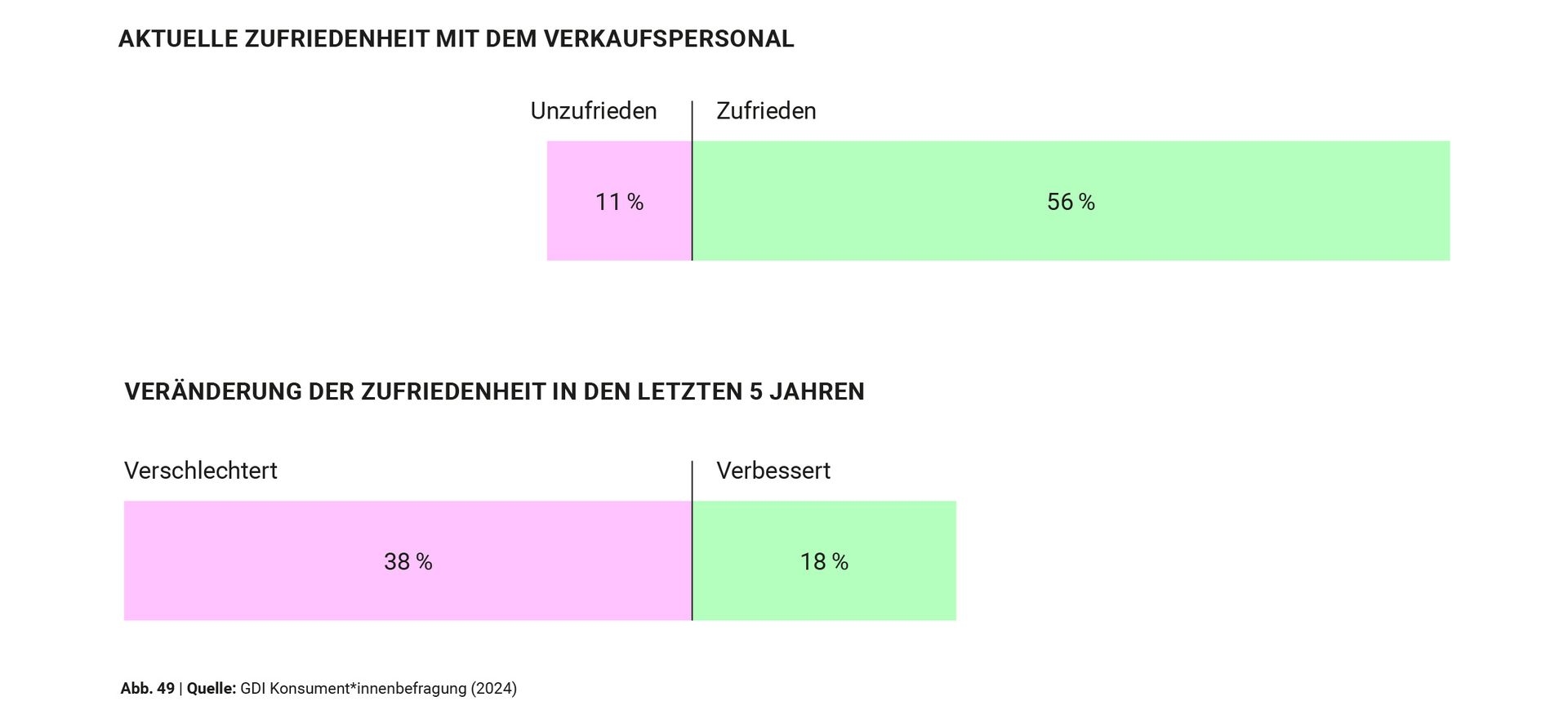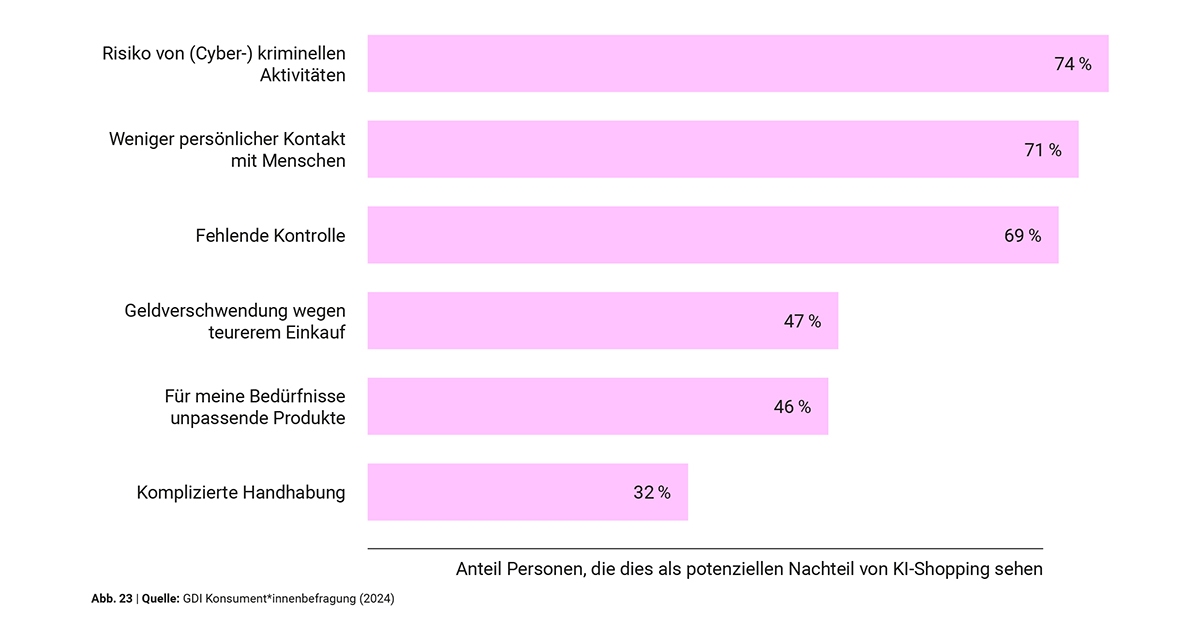The shop as a social space
A shop is not a neutral place. Anyone who enters it becomes part of a social framework - whether it be consciously or unconsciously. The furnishings, the sounds, the presence of other people create a mood that is much more than just the act of shopping. A completely empty room can be irritating. It would feel like something fundamental is missing: a counterpart, an atmosphere, perhaps even a legitimate reason of why consumers should be there at all. Conversely, too many people and too many staff can create a feeling that too much if going on and can be perceived as controlling – especially if you feel that you are being watched or that your own pace is being inhibited. This conflict between the desired social presence and the desire for privacy at the same time is not a contradiction, but a fine balancing act that good staff must master.
One cold winter’s day, a number of porcupines huddled together quite closely in order through their mutual warmth to prevent themselves from being frozen. But they soon felt the effect of their quills on one another, which made them again move apart. Now when the need for warmth once more brought them together, the drawback of the quills was repeated so that they were tossed between two evils, until they had discovered the proper distance from which they could best tolerate one another.
The philosopher Arthur Schopenhauer tells the story of porcupines that move closer together in the cold, but then injure one another with their quills. It is a parable about the balance between closeness and distance – and thus an astonishingly fitting image for today's relationship between consumers and sales staff in stationary retail.
This is because maintaining the right amount of distance is crucial there too.
Our representative survey of 3031 consumers in the DACH region shows that people don't just want "more" or "less" advice – they want control over when and how contact takes place. Proximity is welcome if it is useful. Distance is appreciated when it allows for undisturbed browsing. The relationship between customers and staff is not being done away with as a result of the increasing use of technology, but rather rebalanced - in a more differentiated, self-determined and sensitive manner.

Gianluca Scheidegger
Senior Researcher and Speaker at the GDI
The behavioural economist analyses social, economic, and technological changes with a focus on retail and consumer behaviour.
More about the author
The desire for advice – but only on the customer's own terms
Contrary to the widespread assumption that consumers don't want to be disturbed by sales staff in shops, our data show a differentiated picture, as 64% of respondents stated that personal advice cannot be replaced by technology. For 50% of them, the opportunity to obtain advice is the main reason for visiting a shop in the first place and not doing their shopping online. And 40% would go one step further – they would boycott shops that completely replace sales staff with artificial intelligence.
The notion of completely autonomous shopping, where human contact is no longer necessary, is still met with scepticism by large swathes of the population. Many people appreciate the conversations, the exchange of knowledge and ideas, and the expertise - but only if they really want it. Customers are still satisfied when they receive the right level of service and advice. In Switzerland in particular, many people rate their experiences with sales staff as positive, with 60% of respondents stating that they are generally satisfied with sales staff in shops. In Germany, the figure stands at 52%, in Austria 55%.
Dwindling satisfaction and crumbling trust
At the same time, it cannot be denied that there is an ever-growing feeling of dissatisfaction. Some 38% of respondents in the DACH region stated that the quality of sales staff has deteriorated in the last five years. In contrast, only 18% have noticed an improvement. The discrepancy is clear – and it has consequences. The more dissatisfied respondents are with the staff, the more they can imagine shopping without sales staff and the more open they are to shops in which people are replaced by technology.
ZUFRIEDENHEIT MIT DEM VERKAUFSPERSONAL IM WANDEL

The reasons for the growing levels of dissatisfaction are obvious: many shops lack staff or the staff they employ are overworked. Sales assistants have to provide advice, collect payments, put things away, be technically adept and have a human presence at the same time. Under these conditions, there is hardly any room for the kind of competent, attentive and personalised advice that many people want.
What's more, many customers nowadays are often well prepared. Anyone entering a shop and planning to make a major purchase has already gathered comprehensive information online. If the information provided in the shop remains superficial or questions cannot be answered, customers can feel a sense of disappointment – and trust in the advice provided decreases. It is thus unsurprising that many people prefer to keep their distance.
66% of respondents want to be left alone
This is also reflected in the figures. Two-thirds of respondents—66% to be precise—prefer not to be approached when shopping and only want help when they actively seek it. The desire for peace and quiet within the shop, for self-determined exploration, is clearly set out. The salesperson should not disappear, but thy should take a step back. It is not the contact itself that is the problem, but the timing of it and the way in which it takes place.
This attitude is also reflected in the assessment of artificial intelligence. A total of 47% of respondents see "less personal contact with people" as one of the advantages of outsourcing some or all of the purchasing processes to an AI. At the same time, in a separate question, 71% see this as a disadvantage. This means that many people rate the same aspect differently depending on the situation – sometimes they see a lack of contact as relieving and sometimes as a loss.
WENN KI DAS EINKAUFEN ÜBERNIMMT – WELCHE NACHTEILE ERWARTEN KONSUMENT*INNEN?

Whether proximity is perceived as helpful or annoying depends very much on the individual moment – the context, the product and the customer's own mood. The provision of advice is not always seen as being welcome or undesirable. It should be provided when it is actually needed.
The art of the maintaining the right distance
The future of shopping will not be decided by the question of whether AI replaces retail, but whether it can improve it – in the interests of the people who are making the purchases. Consumers do not expect a radical break, but rather a smart further development. Brick-and-mortar retail will remain relevant if it offers proximity without being intrusive and permits distance without appearing cold.
As with Schopenhauer's porcupines, finding the right distance in retail is an art: close enough for warmth, but far enough away for autonomy. Technology can help – but only if it serves people. The advice of the future is present, but not dominant. It is competent, but not lecturing. And it is human – precisely because it understands when it needs to take a step back.
Smart and human: AI amidst the conflicting priorities of maximising efficiency and customer centricity
A representative survey of over 3,000 consumers in the DACH region sheds light on the uncertainties and needs of customers. A survey of around 300 retail managers in Germany and Switzerland shows whether companies are taking these concerns seriously. The TRADE framework offers practical support for the successful implementation of AI measures based on the findings of the study.
The 75th International Retail Summit on 10 and 11 September 2025 at the GDI in Rüschlikon, international experts and industry leaders will discuss how retailers can develop clearly defined strategies from this.